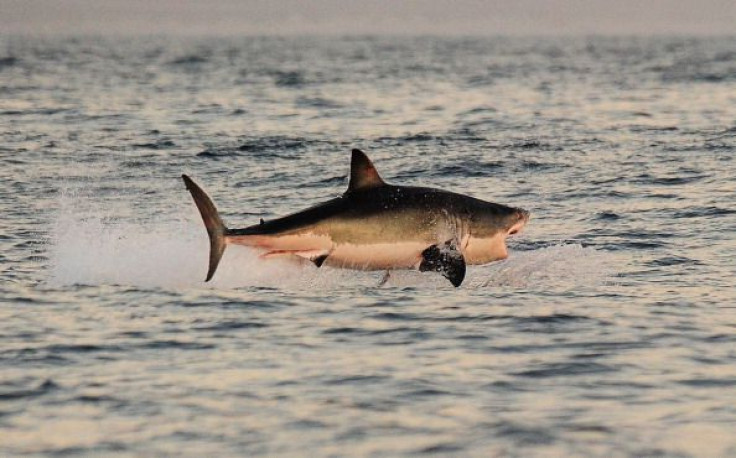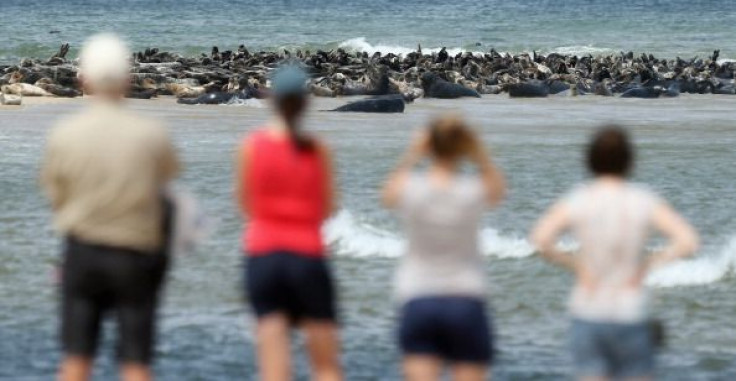How Likely Are You To Be Killed By A Shark?

In early June, beachgoers in Cape Cod, Massachusetts, caught their first glimpse of a great white shark, reviving long-held fears of arguably the most ferocious species in the water. The 1975 blockbuster thriller "Jaws" took place in New England and since then a phobia of sharks has probably never fully subsided.
With every sighting comes a question on many people's minds: What is the actual likelihood of getting killed by a shark?
While many fear being attacked by sharks, statistics show that they pose little threat to humans. The odds of getting killed by a shark are 1-in-3.7 million, according to the National Aquarium in Baltimore.
Read: The Terrifying Great White Shark Named Katherine Was Spotted Again, Close To Virginia
"We’re not just afraid of things because of the likelihood they’ll happen, but because of the nature of them if they do happen," David Ropeik, instructor of risk communication at Harvard University, said to Live Science. "So it may be unlikely that you’ll be attacked by a shark, but it would suck if you did."
The United States had 53 unprovoked, non-fatal shark attacks in 2016. When compared to 81 confirmed worldwide shark attacks in the same year, both numbers are still not high enough to match the public’s fear. Experts said dying by an asteroid explosion —a 1-in-1.6 million chance —is more likely than dying from a shark attack.
“There’s a deep-seated fear in all humans of being bitten by some animal, either on land or in the sea,” said Gregory Skomal, a shark expert with Massachusetts’ Division of Marine Fisheries. “The ocean looks dark and deep and foreign to us. It embellishes that fear.”
Several causes of death have previously been more likely than dying from a shark attack. There is a 1-in-63 chance of dying from the flu, a 1-in-90 chance of dying in a car accident, a 1-in-218 chance of dying from a fall and a 1-in-960,000 chance of dying in a lightning strike.

Fear associated with being attack by a shark is not completely unwarranted, but it is exaggerated. General satellite surveillance of great white sharks revealed they have little interest in people, with individual sharks remaining near a beach for 28 days at a time with few human encounters. World Wildlife Fund declared them as "vulnerable," meaning the number of the species is decreasing steadily.
Read: Great White Shark Surrounds Australian Family's Boat
“We don’t say white sharks are not dangerous animals. You still have to respect them. If you make a mistake, the predatory nature of the shark is going to come out,” said Dr. Alison Kock, research manager of Cape Town’s Shark Spotters Programme. “It’s tragic when an attack happens, but given the amount of time they spend close to beaches, they’re not targeting us.”
University of Florida shark experts reported humans are 290 times more likely to die in a boating accident and 132 times more likely to drown at the beach than to die from a shark attack.
© Copyright IBTimes 2024. All rights reserved.











